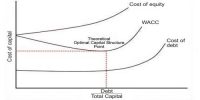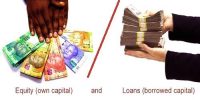Over Capitalization is occurring when a firm cannot service its debt even though its debt/equity ratio is not excessive. It is a situation in which a company has too much capital. Before going to define “Over capitalization”, we first need to know what is capitalization?
Capitalization means the total amount of capital employed in an enterprise. And, overcapitalization indicates a situation when an enterprise possesses, an excess of assets in relation to its requirement. It hampers the earning capacity of the enterprise. It occurs when a company has issued more debt and equity than its assets are worth. In the case of overcapitalization, the total equity (owner’s capital + debt) of a company exceeds the actual worth of its assets. This problem is usually solved by buying back shares or paying off debt.
This may be due to:
- Acquiring of fictitious assets like goodwill at high prices.
- Acquiring assets during the inflationary period.
- Showing assets at increased value due to lack of proper depreciation policy.
Overcapitalization may happen when the return on investment earned by a company is remarkably lower with admiration to other comparable companies in a similar industry. Because the enterprise fails to pay a fair return on its capital investments.
The causes of overcapitalization are as follows:
- Inactive Funds: Company may have funds which might not have been used properly.
- Over-valued: Fixed assets may be having a higher cost than that of its actual cost.
- Inadequate Depreciation provision: Fixed assets might not have adequate provision.
















